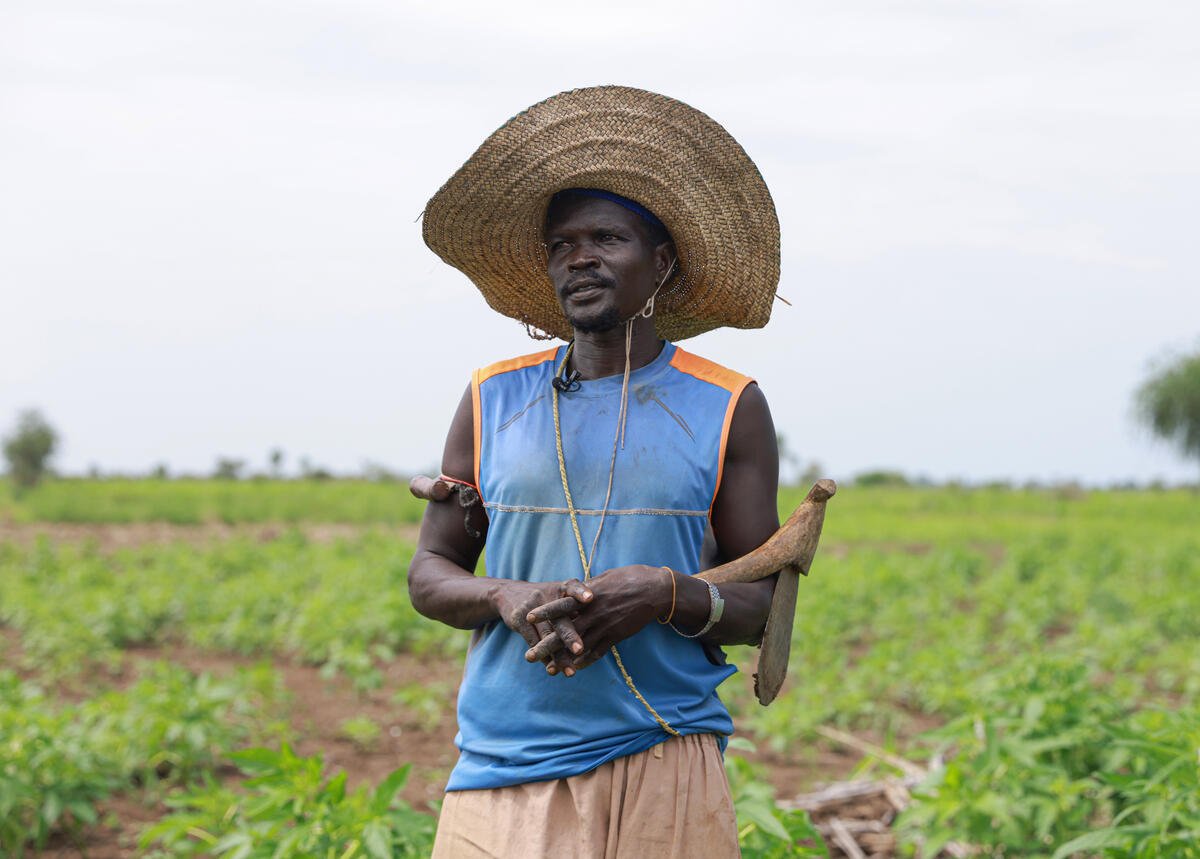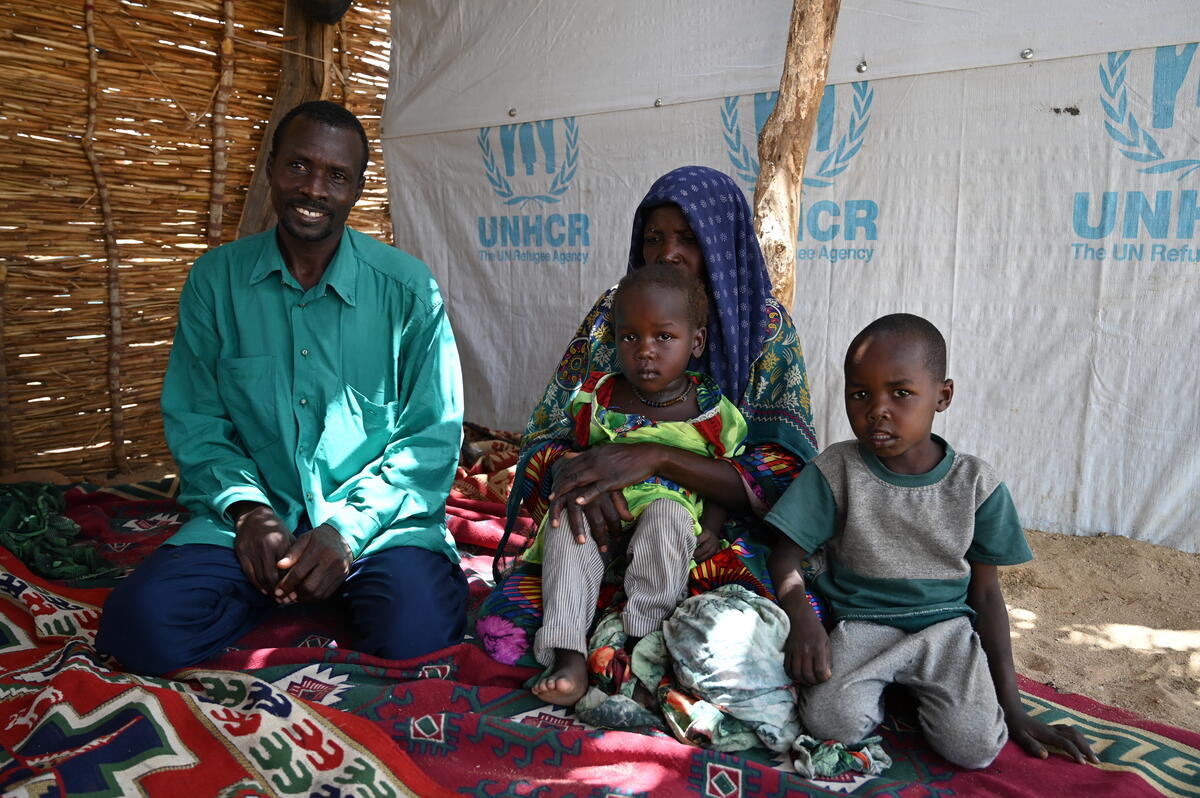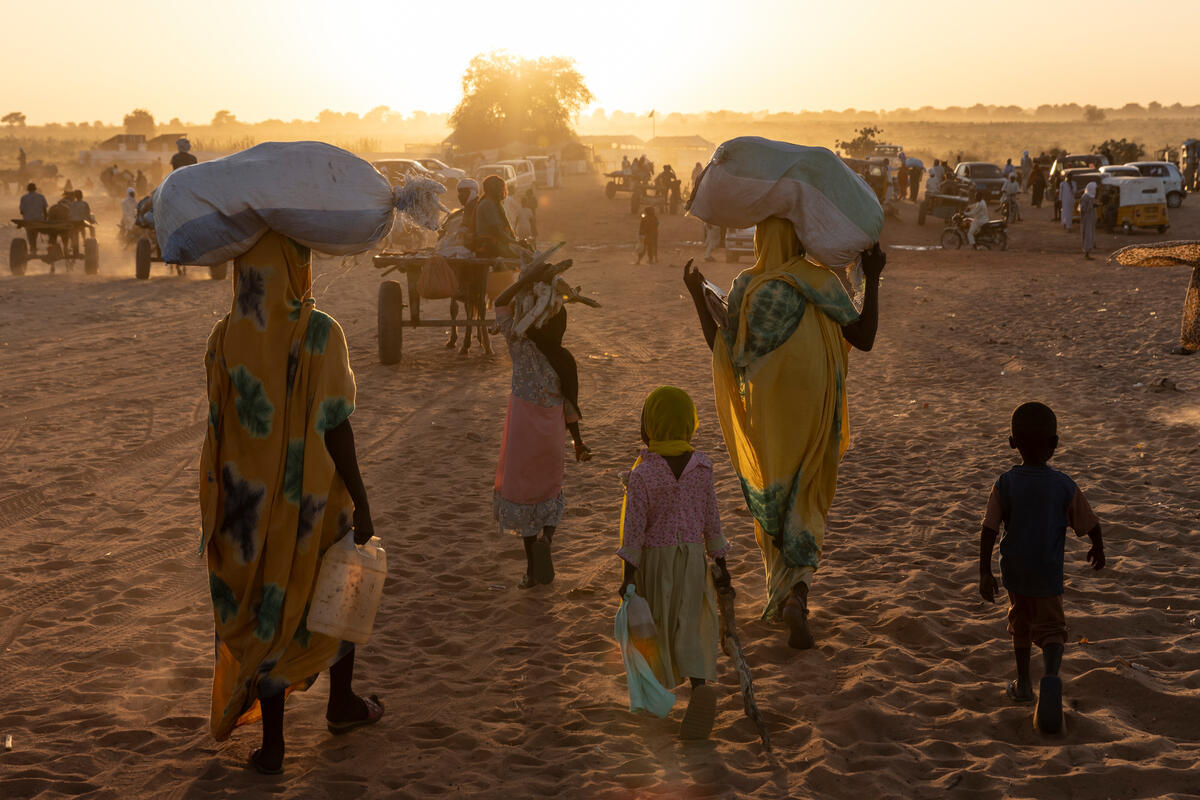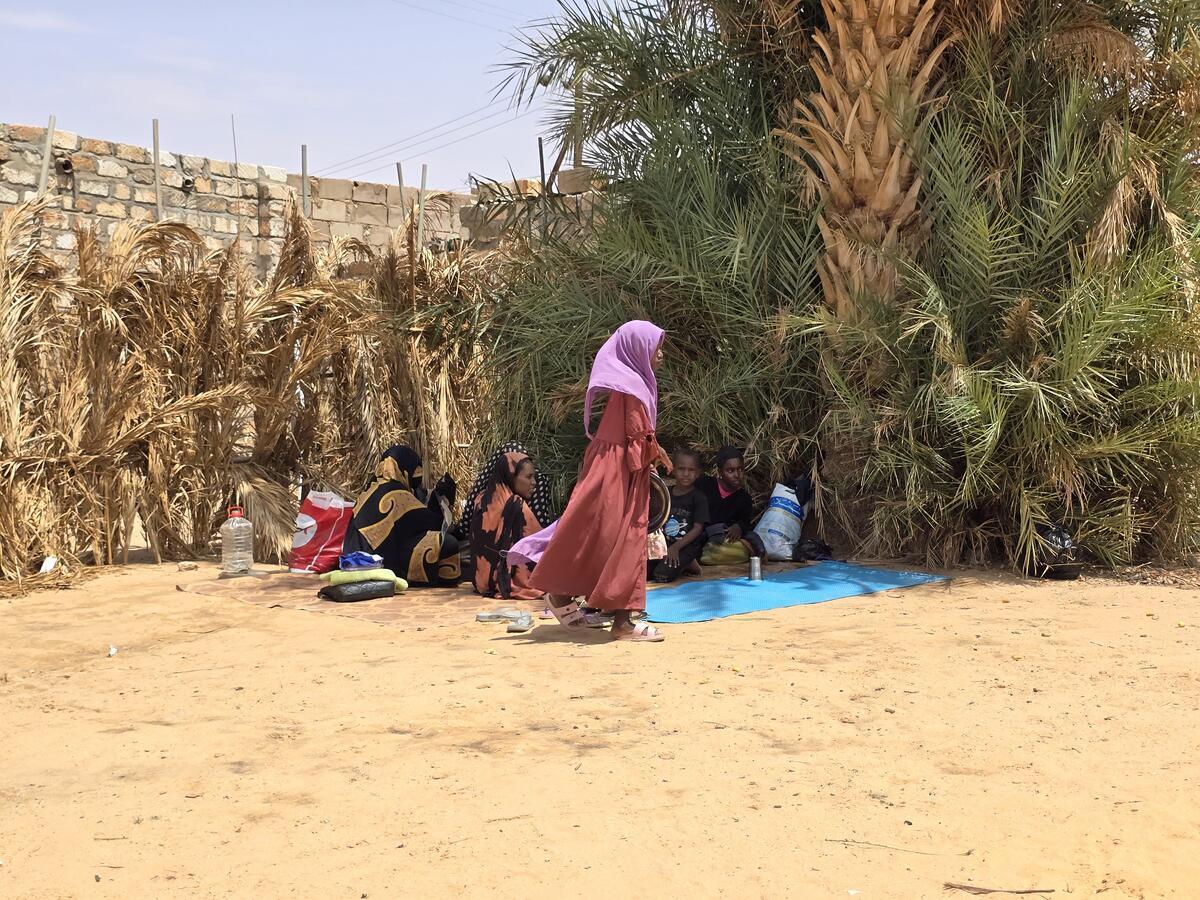Global community to urge action on escalating Sudan crisis at UN General Assembly
Global community to urge action on escalating Sudan crisis at UN General Assembly

Newly arrived Sudanese refugees near the border in Adre, Chad. More than 2 million people have fled Sudan to neighbouring countries since April 2023.
-
17 months of brutal conflict in Sudan have fuelled the world’s worst hunger crisis
-
At the UN General Assembly today, the United Nations and Member States will call for stepped-up action to end the war and to fast-track the humanitarian response in Sudan and the region
-
The meeting will be livestreamedLink is external from 10 a.m. EST/2 p.m. GMT/4 p.m. CET
NEW YORK – As the catastrophic humanitarian crisis in Sudan enters its 18th month, the United Nations and Member States will today call for immediate steps to be taken to protect civilians, scale up humanitarian funding and access, and end the fighting once and for all.
Relentless hostilities across the country have brought misery to millions of civilians, triggering the world’s fastest-growing displacement crisis. More than 10 million people have fled their homes since April 2023 – half of them children – including more than 2 million people who have sought safety in neighbouring countries.
Sudan is now also the world’s largest hunger crisis, with over half of the country’s population – nearly 26 million people – facing high levels of acute hunger. Famine has been confirmed in North Darfur’s Zamzam camp, with many other areas at risk. Nearly 5 million children and pregnant and breastfeeding women are acutely malnourished.
Health care and basic services have been decimated, cholera and other diseases are on the rise, and children are out of school for a second straight year. The emergency is one of the worst protection crises in recent history, with alarming levels of sexual and gender-based violence continuing to terrorize civilians, particularly women and girls.
As hostilities continue unabated, humanitarian action to support millions of people in Sudan and the region has never been more urgent. Inside Sudan, underfunding, insecurity and restricted humanitarian access continue to hamper efforts to scale up response efforts.
Neighbouring countries – despite already grappling with chronic underfunding and large displaced populations before the Sudan conflict – have continued to welcome Sudanese refugees. More support is needed to help host governments provide essential protection and critical life-saving assistance to the new arrivals.
Today’s ministerial meeting at the UN General Assembly in New York is being co-hosted by the UN Office for the Coordination of Humanitarian Affairs (OCHA) and UNHCR, the UN Refugee Agency – alongside the Kingdom of Saudi Arabia, the Arab Republic of Egypt, the United States of America, the African Union, and the European Union. Together, they will outline the devastating human toll if the international community fails to take urgent and collective action to stem the humanitarian crisis and stop the fighting in Sudan.
The 2024 Humanitarian Needs and Response Plan for Sudan seeks US$2.7 billion to help 14.7 million people until the end of this year. It is currently less than half funded, at 49 per cent.
This year’s Sudan Regional Refugee Response Plan requires $1.5 billion to support 3.3 million refugees, returnees and host communities in seven countries neighbouring Sudan. It is currently just 25 per cent funded.
- The Acting Under-Secretary-General for Humanitarian Affairs and Emergency Relief Coordinator, Joyce Msuya, said: “People in Sudan have endured 17 months of hell, and the suffering continues to grow. Thousands of civilians have been killed, entire communities displaced and deprived of food, families scattered, children traumatized, women raped and abused. Decisive international action is urgent. We need humanitarian access to everyone in need, through all necessary routes, ramped-up funding for the response, ironclad commitments to protect civilians, and most of all, real and inclusive steps to end this ruinous war.”
- The UN High Commissioner for Refugees, Filippo Grandi, said: “This brutal war has uprooted millions of people, forcing them to leave their homes, schools and jobs behind in search of safety. Countries neighbouring Sudan are generously hosting a rising number of refugees, but cannot shoulder that responsibility alone. People need humanitarian aid now and support to rebuild their lives. Meaningful peace efforts are also urgently needed so people can eventually return home. The stability of the whole region hangs in the balance.”
- The Minister of Foreign Affairs of the Kingdom of Saudi Arabia, H.H. Prince Faisal bin Farhan Al Saud, said: “The Kingdom of Saudi Arabia has spared no effort in supporting the Sudanese people since the beginning of the crisis. This includes our contribution to the establishment of a humanitarian hub for the World Food Programme in Jeddah, which serves as a centre for storing and sending aid to Sudan and neighbouring countries affected by the crisis. It is critically important to restore humanitarian operations, protect civilians and aid workers, and ensure the safety of humanitarian corridors for the delivery of essential aid.”
- The Minister of Foreign Affairs of the Arab Republic of Egypt, H.E. Mr. Badr Abdelatty, said: “The Government of Egypt is committed to ending the conflict in Sudan, ensuring humanitarian assistance, and the protection of civilians. Collective action to preserve the sovereignty, unity and territorial integrity of Sudan is a must.”
- The Ambassador and Permanent Representative of the United States of America, H.E. Ms. Linda Thomas-Greenfield, said: “The war in Sudan has created the worst humanitarian crisis on Earth, and as leaders gather in New York, the country is on the verge of a generational famine. The United States has worked tirelessly with partners to negotiate life-saving humanitarian access across conflict lines and borders and mediate an end to the violence. The international community must redouble efforts to arrest this spiral of death and destruction. The Sudanese people deserve nothing less.”
- The African Union Commissioner for Health, Humanitarian Affairs and Social Development, H.E. Ambassador Cessouma Minata Samate, said: “The African Union (AU) has committed US$11 million in 2024, including $7 million from the AU Peace Fund, to support peace and stability in Africa. This funding will aid humanitarian efforts for Sudan and its neighbours hosting refugees, and back Sudan’s peace process. The AU condemns the ongoing conflict in Sudan, urging swift action to protect lives and infrastructure.”
- The EU Commissioner for Crisis Management, H.E. Mr. Janez Lenarčič, said: "The situation in Sudan can now only be described as a humanitarian disaster of the highest level. All sides are committing atrocities, as recently confirmed by the United Nations fact-finding mission. The war, now in its second year, has pushed parts of North Darfur into famine conditions, with the situation expected to deteriorate. Atrocities, and famine, are the results of conflict: I reiterate my call on all parties to the conflict to explore all possible ways to resolve it, while at the same time respecting international humanitarian law. To help address the repercussions of war, I have requested from the EU’s Budgetary Authority to approve additional humanitarian funding for Sudan and its neighbouring countries.”
Media contacts:
- UN Office for the Coordination of Humanitarian Affairs (OCHA) in New York: Amanda Price, amanda.price@un.org, +1 917 853 2839
- UNHCR, the UN Refugee Agency, in Geneva: William Spindler, spindler@unhcr.org, +41 79 549 5998








